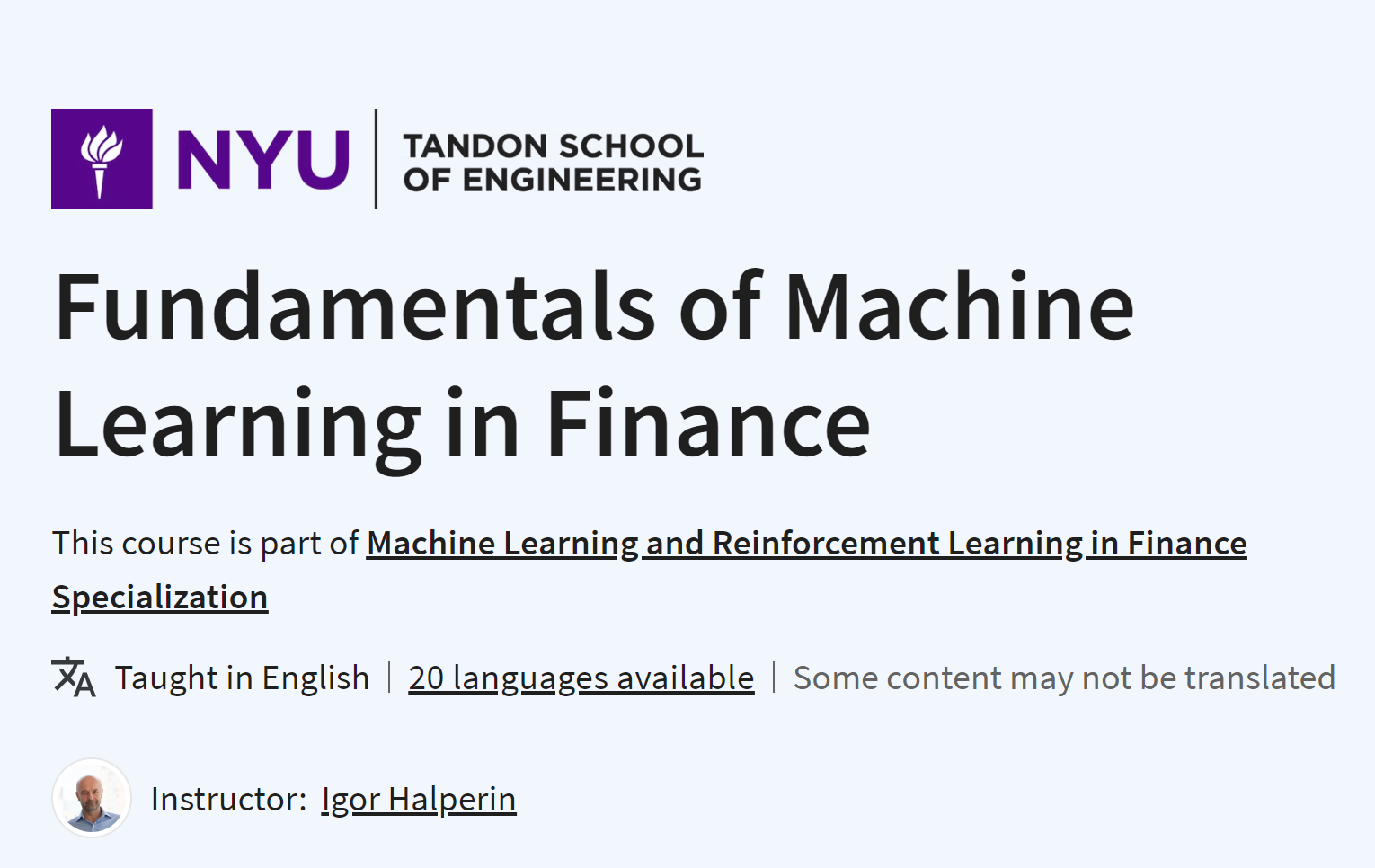Build your subject-matter expertise
This course is part of the Machine Learning and Reinforcement Learning in Finance Specialization
When you enroll in this course, you'll also be enrolled in this Specialization.
Learn new concepts from industry experts
Gain a foundational understanding of a subject or tool
Develop job-relevant skills with hands-on projects
Earn a shareable career certificate
Join Free: Fundamentals of Machine Learning in Finance
There are 4 modules in this course
The course aims at helping students to be able to solve practical ML-amenable problems that they may encounter in real life that include: (1) understanding where the problem one faces lands on a general landscape of available ML methods, (2) understanding which particular ML approach(es) would be most appropriate for resolving the problem, and (3) ability to successfully implement a solution, and assess its performance.
A learner with some or no previous knowledge of Machine Learning (ML) will get to know main algorithms of Supervised and Unsupervised Learning, and Reinforcement Learning, and will be able to use ML open source Python packages to design, test, and implement ML algorithms in Finance.
Fundamentals of Machine Learning in Finance will provide more at-depth view of supervised, unsupervised, and reinforcement learning, and end up in a project on using unsupervised learning for implementing a simple portfolio trading strategy.
The course is designed for three categories of students:
Practitioners working at financial institutions such as banks, asset management firms or hedge funds
Individuals interested in applications of ML for personal day trading
Current full-time students pursuing a degree in Finance, Statistics, Computer Science, Mathematics, Physics, Engineering or other related disciplines who want to learn about practical applications of ML in Finance
Experience with Python (including numpy, pandas, and IPython/Jupyter notebooks), linear algebra, basic probability theory and basic calculus is necessary to complete assignments in this course.






















.jpg)






.png)




















0 Comments:
Post a Comment